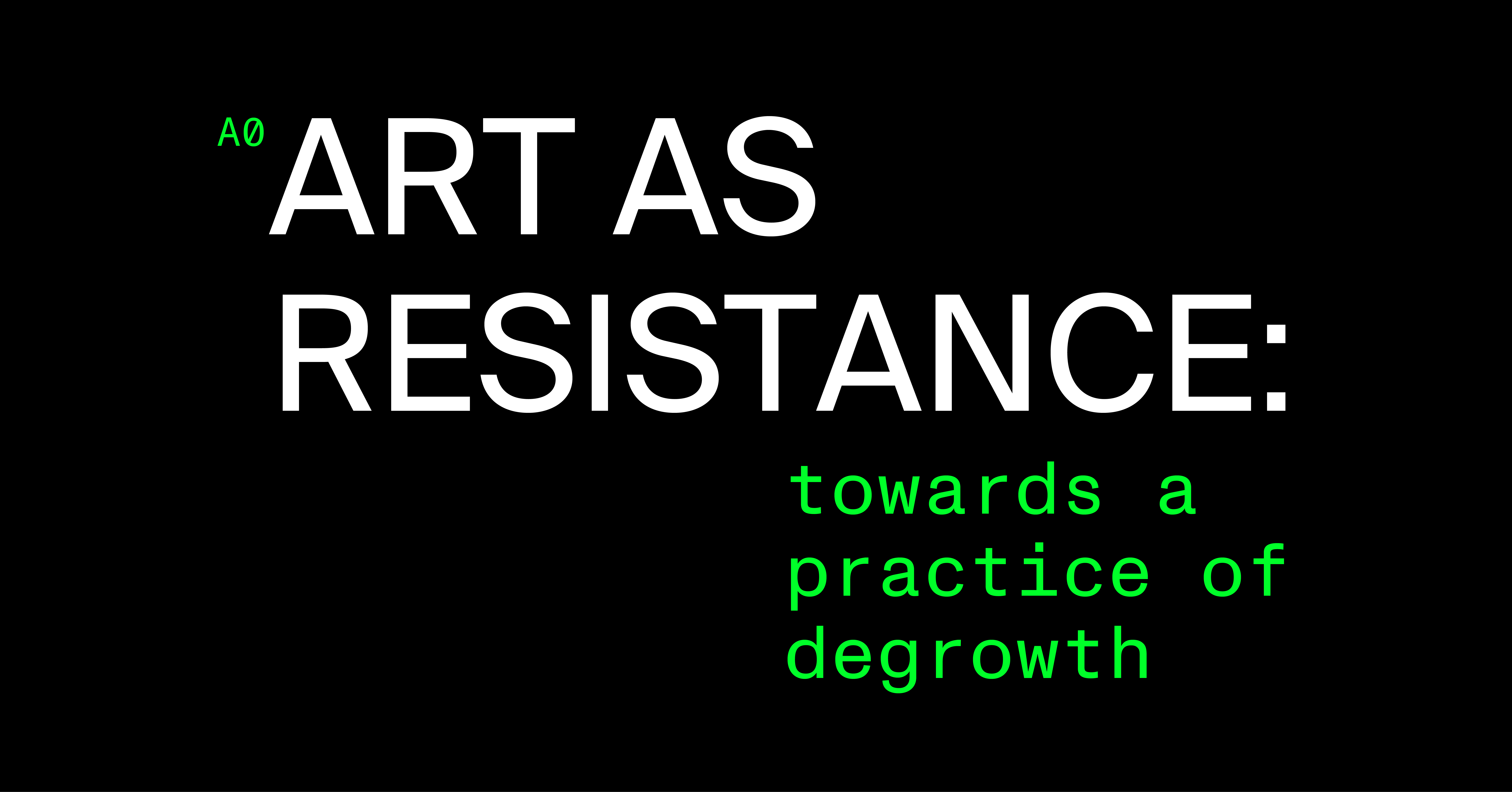Alexandra Papademetriou /// Radionica “The Degrowth Toolbox for Artistic Practices”Alexandra Papademetriou /// Radionica “The Degrowth Toolbox for Artistic Practices”bijenale mladih 2021.

/// Opis radionice kao i sve potrebne informacije u prijavi pogledajte u nastavku teksta:
Art as resistance: Towards a practice of degrowth
We’re living in a time of prolonged, perpetual crisis. It is becoming increasingly clear that our current ways of working are unsustainable and inadequate in adapting to the oncoming changes brought by not only by the ongoing pandemic, but by climate change, civil unrest, and the broader societal shift. In this transitory time, artists are faced with an opportunity to rethink and redesign our practices.
This workshop invites artists, curators, activists, community organisers, and anyone with an interest in these fields to explore degrowth. Bringing together decolonial theory, institutional critique, politics of care, and mutual aid practices, this discursive workshop questions established artistic practices and invites participants to imagine how a degrowth approach to the arts can be designed and implemented.
/// Molimo sve posetioce da se pridržavaju svih aktuelnih pandemijskih mera opreza i budu odgovorni prema sebi i drugima.
Organizacioni tim Bijenala mladih 2021